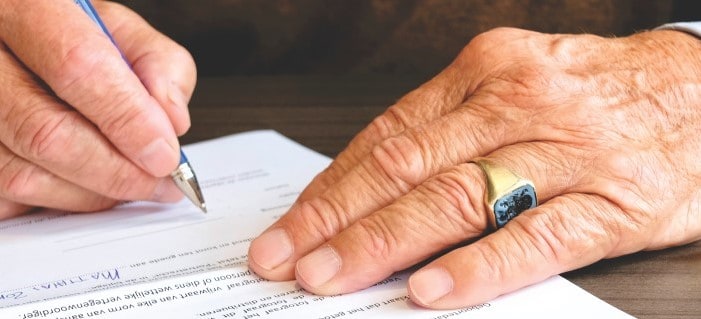The world we live in, work in and play in could not exist without the network of laws that govern us. The building you are sitting in: building regulations and planning permission, rights of access, rights of ownership. The technology you are using: patents, licences, trademarks, terms, safety regulations and conditions of use. The clothes you are wearing: quality regulations, employment rights, shipping law. Your journey to work: insurance, contracts, legislation. And this is just a tiny fraction of what affects us minute by minute.
We cannot escape the law – past, present and future. And, it goes without saying that without words – contracts, negotiations, judgments, legislation – the law would struggle to operate. A missing word can be dangerous at worst, ambiguous at least – and the law and ambiguity do not mix, the latter being the basis of many disputes that end up in court. It is essential that legal texts are accurate, clear, unambiguous and consistent. If people are to rely on legal documents or on legal advice, their reliance and confidence in that advice, and in those giving it, risks being weakened if the reader finds errors in the text, or if the document is difficult to follow because of badly worded phrasing.
Clarity is paramount in legal texts, and for this reason, legal proofreading by a specialist editor can be invaluable. It is often very difficult, if not impossible, for a writer to proofread their own work. This is no less applicable to legal texts and those who write them, and such texts may have additional complications – for example, standard documents may have been tweaked or renumbered, or there may be time pressures involved in drafting and checking them.
The range of law-related documents that benefit from an extra set of eyes is vast. Some examples include:
- Contracts (typos, formatting, consistency)
- Law firms’ websites
- Law firms’ internal communication – staff newsletters and magazines, legal updates, intranet and forum text
- Law firms’ external communication – client newsletters, case law updates, social media text
- Barristers chambers’ websites and client communication
- Company website legal documents, such as terms and conditions, privacy policies and GDPR policies
- Non-digital documents, such as terms and conditions, delivery agreements, catalogues
- Expert witness reports for evidence in court and pre-trial
- Training materials for non-law staff, such as employment handbooks and health and safety guides
- Company reports, including company secretary, auditors, corporate social responsibility
- Law dissertations and theses
- Law journal articles
There are a number of advantages in using a proofreader with specialist legal knowledge or experience, such as:
- Language: legal words do not always have the same meaning in a non-law context. A legal proofreader will recognise this, and will only raise necessary and relevant queries. Spellings can also differ in a law context; it is not always a matter of ‘choosing a style’, but of following convention.
- Formatting: cases, legislation and judgments have different formatting conventions, and a legal proofreader will recognise which are correct and which are not, as well as be able to distinguish between the dominant styles in different countries.
- Clarity and meaning: an experienced legal proofreader will be used to reading many legal texts, including Acts of Parliament and contract provisions. While legal documents may seem complicated and ‘wordy’, they are in fact precisely written, using tried-and-tested terminology. A proofreader familiar with such texts will be able to ascertain where text is ambiguous and where it may cause problems further down the line. Problems can arise from something as small as an ambiguous pronoun (they; it) or from something larger, like a missing paragraph. However, all errors – big or small – have the potential to cause problems.
- Plain English: a proofreader’s expertise lies in words and in helping to present them in a meaningful way. Some legal texts need to be written for non-law readers, but this is not always easy to achieve for those who specialise in law, when legal phraseology is part of their day-to-day life. However, a legal proofreader can wear both hats: they have the legal knowledge to understand the message behind the text, but they can also ensure that the message is relayed in plain English for a non-law readership.
What legal proofreading is not
Legal proofreading is not a replacement for legal advice. A legal proofreader will not be permitted to provide such advice, unless they also practise as a lawyer with a valid practising certificate and the requisite professional insurance (and such advice is likely to cost a lot more than the cost of proofreading). However, if legal advice is what you need, your proofreader will be able to guide you in this and help direct you to The Law Society or other legal agencies.
Now that you know exactly what a legal proofreader can do for you, contact Full Proof for all your legal proofreading requirements. You can fill out our contact form or email us directly at [email protected].


Recent Comments